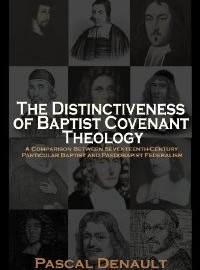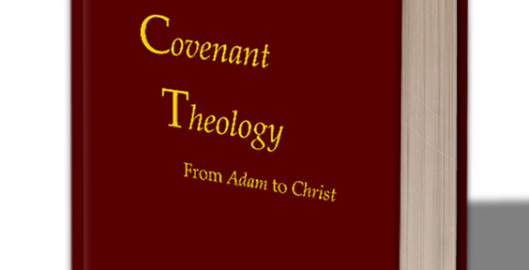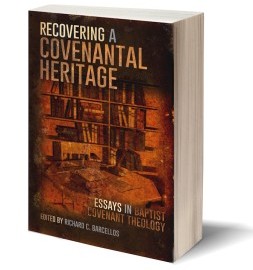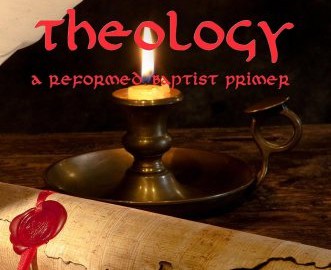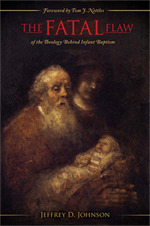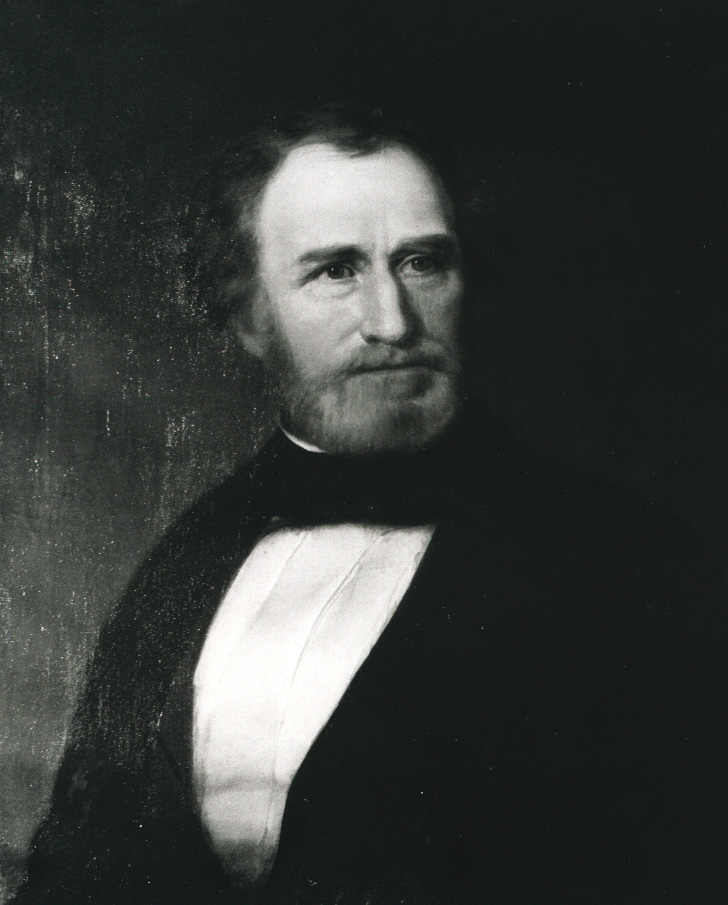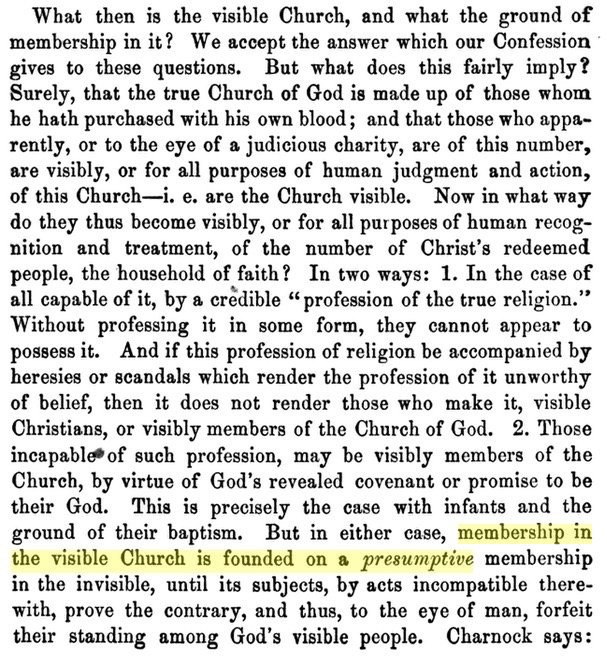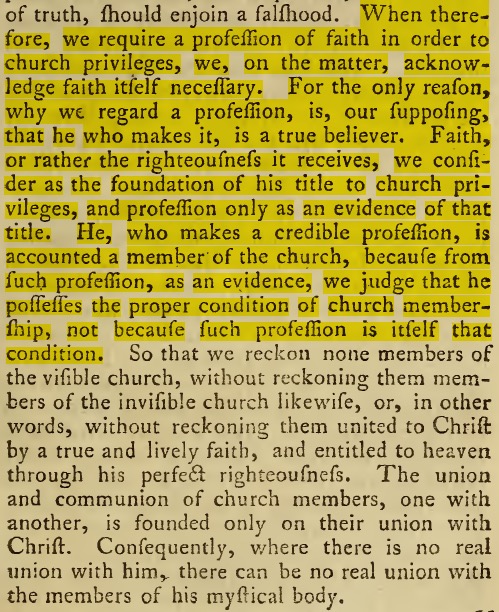Resources
Interactive Outline of John Owen’s Exposition of Hebrews 8:6-13
On 07, Jun 2013 | In Resources | By Brandon Adams
In talking with a number of well read people, I have been surprised how many of them are completely unaware of John Owen’s contribution to covenant theology. I had one person ridicule baptists for rejecting “Reformed orthodoxy” in the Westminster Standards because of our view of covenant theology. He then informed me he would “stick with Witsius, Owen, Petto, and Colquhoun.” This man was completely unaware that John Owen rejected the “Reformed orthodoxy” of the Westminster Standards.
Owen rejected the formulation of the Westminster Confession (one covenant, two administrations) and held that the new and the old were two distinct covenants with two different mediators and everything else that follows. I believe he provides a valuable contribution to current debate over covenant theology and everyone who is interested should read him. However, I also know not everyone has time to read through his 150 pages on Hebrews 8:6-13, so I have created a summary outline of Owen’s argumentation. I created it in a collapsible format to make it easier to follow the progress of his arguments. Hopefully this will interest people in reading Owen, which will hopefully lead to a better understanding of covenant theology for us all.
Here is the link:
Owen on Hebrews 8:6-13 (Collapsible Outline)
Here are a couple of quotes to give you a taste:
The judgment of most reformed divines is, that the church under the old testament had the same promise of Christ, the same interest in him by faith, remission of sins, reconciliation with God, justification and salvation by the same way and means, that believers have under the new… The Lutherans, on the other side, insist on two arguments to prove that there is not a twofold administration of the same covenant, but that there are substantially distinct covenants and that this is intended in this discourse of the apostle…
…Having noted these things, we may consider that the Scripture does plainly and expressly make mention of two testaments, or covenants, and distinguish between them in such a way as can hardly be accommodated by a twofold administration of the same covenant…Wherefore we must grant two distinct covenants, rather than merely a twofold administration of the same covenant, to be intended. We must do so, provided always that the way of reconciliation and salvation was the same under both. But it will be said, and with great pretence of reason, for it is the sole foundation of all who allow only a twofold administration of the same covenant, ’That this being the principal end of a divine covenant, if the way of reconciliation and salvation is the same under both, then indeed they are the same for the substance of them is but one.’ And I grant that this would inevitably follow, if it were so equally by virtue of them both. If reconciliation and salvation by Christ were to be obtained not only under the old covenant, but by virtue of it, then it must be the same for substance with the new. But this is not so; for no reconciliation with God nor salvation could be obtained by virtue of the old covenant, or the administration of it, as our apostle disputes at large, though all believers were reconciled, justified, and saved, by virtue of the promise, while they were under the old covenant.
Having shown in what sense the covenant of grace is called “the new covenant,” in this distinction and opposition to the old covenant, so I shall propose several things which relate to the nature of the first covenant, which manifest it to have been a distinct covenant, and not a mere administration of the covenant of grace.
–
This covenant [Sinai] thus made, with these ends and promises, did never save nor condemn any man eternally. All that lived under the administration of it did attain eternal life, or perished for ever, but not by virtue of this covenant as formally such. It did, indeed, revive the commanding power and sanction of the first covenant of works; and therein, as the apostle speaks, was “the ministry of condemnation,” 2 Cor. iii. 9; for “by the deeds of the law can no flesh be justified.” And on the other hand, it directed also unto the promise, which was the instrument of life and salvation unto all that did believe. But as unto what it had of its own, it was confined unto things temporal. Believers were saved under it, but not by virtue of it. Sinners perished eternally under it, but by the curse of the original law of works.
–
No man was ever saved but by virtue of the new covenant, and the mediation of Christ in that respect.
The Distinctiveness of Baptist Covenant Theology (Revised Edition)
On 01, Mar 2013 | In Books, Featured, Pascal Denault, Resources | By Brandon Adams
Pascal Denault’s careful labors over the theological texts of both Baptist and Pedobaptists of the seventeenth century have yielded an excellent study of the relation of baptism to a commonly shared covenantalism. At the same time he has shown that a distinct baptistic interpretation of the substance of the New Covenant, that is, all its conditions having been met in the work of Christ its Mediator resulting in an unconditional application of it to its recipients, formed the most basic difference between the two groups. His careful work on the seventeenth-century documents has yielded a strong, Bible-centered, covenantal defense of believers’ baptism and is worthy of a dominant place in the contemporary discussions of both covenantalism and baptism.
-Thomas J. Nettles, Ph.D.
Covenant Theology: From Adam to Christ
A reprint of two seventeenth century theologians, Nehemiah Coxe (Adam-Abraham) and John Owen (Mosaic-New).
Coxe says “That notion (which is often supposed in this discourse) that the old covenant and the new differ in substance and not only in the manner of their administration, certainly requires a larger and more particular handling… I designed to give a further account of it… But I found my labor for the clearing and asserting of that point happily prevented by the coming out of Dr. Owen’s third volume on Hebrews.”
Owen said “No man was ever saved but by virtue of the new covenant, and the mediation of Christ in that respect.”
Order Kindle Order HardbackRecovering a Covenantal Heritage
Introduction, James M. Renihan, Ph.D.
1. A Brief Overview of Seventeenth-Century Reformed Orthodox Federalism, Richard C. Barcellos, Ph.D.
2. Covenant Theology in the First and Second London Confessions of Faith, James M. Renihan, Ph.D….
Order Paperback Order on KindleCovenant Theology: A Reformed Baptist Primer
This is a good book, but it is not recommended as the best primer for understanding 1689 Federalism.
Please see the Recommended Reading List.
1689 Federalism Note: Van Dorn adopts the 1689 Federalism model in that he rejects the “one covenant under multiple administrations” model and also views the Abrahamic, Mosaic, and Davidic covenants as works-based. He cites Coxe, Collins, Denault, and Sam and Micah Renihan, among others. But the work is very much his own expression of the biblical data.
He makes a provocative and compelling argument for adding a Levitical Covenant to the traditional understanding of covenant theology.
His belief that “two different people can actually approach the same covenant in two different ways and theoretically both could obtain the blessing” is his own and not necessarily reflective of other 1689 Federalism works. Likewise his comment that false professors are related externally to the new covenant similarly to “unbelieving Israel in the OT” is not reflective of 1689 Federalism. The book is a primer and paints with broad biblical-theology strokes, so the reader would do well to compare the primer with the more comprehensive exegesis offered in the other books here. But the book is a welcome addition and a helpful, brief overview of the bible as a whole, offered with fresh expression and perspective.
Captive to the Word of God – A Particular Baptist Perspective on Reformed and Covenant Theology
N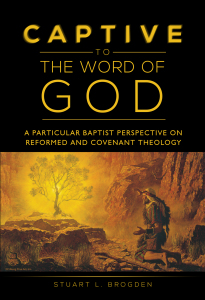 ote: Don’t be confused by the title. This is not a book on 1689 Federalism. It is written by a proponent of NCT. It criticizes confessional subscription and argues the 1689’s understanding of the Mosaic Covenant, Adamic Covenant, and the law is unbiblical. This book is not recommend.
ote: Don’t be confused by the title. This is not a book on 1689 Federalism. It is written by a proponent of NCT. It criticizes confessional subscription and argues the 1689’s understanding of the Mosaic Covenant, Adamic Covenant, and the law is unbiblical. This book is not recommend.
For a more detailed analysis, please see Review: Captive to the Word of God – A Particular Baptist Perspective on Reformed and Covenant Theology
The Covenant of Works: Its Confessional and Scriptural Basis
This is the third book in the series Recovering our Confessional Heritage. The series is sponsored by the Institute of Reformed Baptist Studies in cooperation with RBAP. The Institute of Reformed Baptist Studies is a graduate theological school which aids churches in preparing men to serve in the Gospel Ministry. For more information please visit irbsseminary.org.
The purpose of the series . . . is to address issues related to the Second London Confession of Faith of 1677/89 (2LCF). . . . The series will include treatments of various subjects by multiple authors. The subjects to be covered are those the series editors (along with consultants) determine to be of particular interest in our day. The authors will be those who display ample ability to address the issue under discussion. Some of the installments will be more involved than others due to the nature of the subject addressed and perceived current needs. Many of the contributions will cover foundational aspects of the self-consistent theological system expressed in the Confession. Others will address difficult, often misunderstood, or even denied facets of the doctrinal formulations of the 2LCF. Each installment will have a “For Further Reading” bibliography at the end to encourage further study on the issue discussed. ~ from the series editors, James M. Renihan and Richard C. Barcellos
Product Description
“Moses, writing after the historical acts of creation, utilizes the covenantal name of God, Yahweh, while discussing Adam’s Edenic vocation (Gen. 2:4ff.). Isaiah utilizes concepts that started with Adam to explain the universal guilt of man, while using the word “covenant” (Isa. 25:5-6). Hosea, looking back upon previous written revelation, makes explicit what was implicit in it. The prophet’s inspired words give us God’s infallible knowledge of one of the similarities between ancient Israel and Adam. Both had a covenant imposed on them by God and both transgressed their covenants (Hos. 6:7). Paul, while reflecting on Adam’s Edenic vocation, contrasts the disobedience of Adam and its results with the obedience of Christ and its results (Rom. 5:19). The term “works” in the phrase “covenant of works” contrasts with “grace” and “gift” in Romans 5:17. Paul asserts that Adam was a type of Christ (Rom. 5:14). Adam sinned and fell short of the glory of God (Rom. 3:23). Christ did not sin (Heb. 4:15) and, upon his resurrection, entered into glory (Luke 24:46; Acts 26:19-23; 1 Pet. 1:10-12), a quality of life conferred upon him due to his obedience (Rom. 5:21). This is the life he confers upon all believers.
These scriptural realities, understood by the utilization of the hermeneutical principles of the Holy Spirit as the only infallible interpreter of Holy Scripture, analogia Scriptura, analogia fidei, and scopus Scripturae, led to the confessional formulation of the doctrine of the covenant of works.” ~ Richard C. Barcellos
138 pages
Published 2016
Product Endorsements
A proper understanding of Adam’s state in the garden is fundamental to a coherent doctrine of salvation, which is why this little book on the covenant of works is so important. Richard Barcellos mines the riches of the Reformed Baptist theology and explains the covenant of works with exegetical fidelity and theological clarity. Anyone who wants greater insight into the covenant of works and Reformed Baptist confessional theology should definitely read this book.
J. V. Fesko, Ph.D.
Academic Dean
Professor of Systematic and Historical Theology
Westminster Seminary California
No document more amply demonstrates the clear lines of continuity between Reformed Baptist thought and our Christian creedal and Reformed confessional heritage than the Second London Confession of Faith of 1677/1689. And in that Confession we see the biblical teaching on the covenant of works clearly and cogently expressed. It is in breaking that covenant that Adam became a covenant-breaker, and brought down upon us the covenant curse of death (spiritual, physical, and eternal); and it is in keeping that covenant that the Second and Last Adam, our Lord Jesus, became The Covenant Keeper in our place, and brought down to us the covenant blessing of life eternal. I warmly commend the exceptionally fine work represented by this book.
Dr. Liam Goligher
Senior Minister, Tenth Presbyterian Church
Philadelphia, PA
About the Author
Richard C. Barcellos, Ph.D., is pastor of Grace Reformed Baptist Church, Palmdale, CA. He is author of The Lord’s Supper as a Means of Grace: More than a Memory, Christian Focus/Mentor and Getting the Garden Wrong: A Critique of New Covenant Theology on the Covenant of Works and the Sabbath, forthcoming from Founders Press.
Order at RBAPLogos’ 17th Century Particular Baptist Covenant Theology Collection
On 19, Feb 2011 | In Books | By Brandon Adams
Preface: Make sure to read Samuel Renihan’s important How to Read Logos’ Baptist Covenant Theology Collection to understand how these works relate to 1689 Federalism. They are not all in agreement with every detail. Pascal Denault’s summary as well as the Coxe/Owen volume should guide your evaluation of these other authors.
Overview
The Baptist Covenant Theology Collection dives into seventeenth- and eighteenth-century covenant theology, emphasizing the implications God’s covenants with man have for modern-day believers, particularly regarding baptism. One of the largest divisions facing the Baptist church in the seventeenth century was the stance on paedobaptism. These texts carefully craft arguments from Scripture, drawing from developments in covenant theology to address contemporary arguments supporting infant baptism. The collection contains a blend of accessible texts written for laity and more in-depth scholarship for those wanting to dig into covenant theology.
With Logos Bible Software, these valuable volumes are enhanced by cutting-edge research tools. Scripture citations link directly to English translations, and important terms link to dictionaries, encyclopedias, and a wealth of other resources in your digital library. Powerful searches help you find exactly what you’re looking for. Tablet and mobile apps let you take the discussion with you. With Logos Bible Software, the most efficient and comprehensive research tools are in one place, so you get the most out of your study.
Key Features
- Examines seventeenth- and eighteenth-century covenant theology
- Addresses contemporary paedobaptist arguments
- Provides a variety of accessible and scholarly explorations of Scripture
Individual Titles
- The Ax Laid to the Root, Part 1 by Benjamin Keach
- The Ax Laid to the Root, Part 2 by Benjamin Keach
- The Display of Glorious Grace; or, The Covenant of Peace, Opened by Benjamin Keach
- The Everlasting Covenant: A Sweet Cordial for a Drooping Soul by Benjamin Keach
- A Discourse of the Covenants That God Made with Man before the Law by Nehemiah Coxe
- A Short Description of the Difference between the Bond-Woman and the Free, as They Are the Two Covenants, 2nd ed. by Isaac Backus
- A Treatise concerning the Lawful Subject of Baptism, 2nd ed. by John Spilsbery
- Truth Vindicated, in Several Branches thereof, and Many Objections Fairly and Soberly Answered
- A Just Reply to Mr. John Flavell’s Arguments, by Way of Answer to a Discourse by Cary Philip
- A Solemn Call by Cary PhilipBaby-Baptism Meer Babism; or An Answer to Nobody by Samuel Fisher
- The Fallacy of Infants Baptisme Discovered; or, Five Arguments, to Prove That Infants Ought Not to Be Baptized by Paul Hobson
- A Treatise concerning the Covenant and Baptism: Dialogue-wise, between a Baptist & a Poedo-Baptist by Edward Hutchinson
- Of Baptisme by Henry Lawrence
- A Little Cabinet: Richly Stored with All Sorts of Heavenly Varieties, and Soul-Reviving Influencesby Robert Purnell
- A Treatise of the Vanity of Childish-Baptisme: Wherein the Deficiency of the Baptisme of the Church of England is Considered in Five Particulars Thereof by Andrew Ritor
- The Second Part of the Vanity & Childishnes of Infants Baptisme by Andrew Ritor
The Fatal Flaw
The Fatal Flaw of the Theology Behind Infant Baptism & Covenantal Dichotomism. Johnson’s treatment differs in some important respects from the Coxe/Owen treatment (see disclaimer below), but he shares their rejection of the “multiple administrations” view and highlights the dichotomous nature of the Abrahamic Covenant. This book is a very helpful summary of various ways paedobaptists have attempted to deal with the “law of works” aspect of the Mosaic Covenant.
Disclaimer Paperback KindleR.B.C. Howell’s “The Covenants”
On 08, Dec 2005 | In Books | By Brandon Adams
R. B. C. Howell, the second president of the Southern Baptist Convention, presiding from 1851 through 1858, is described in Cathcart’s Baptist Encyclopaedia as” one of the ablest and most learned men in the South.”
You can read his book The Covenants over at the Founders website, as well as on Kindle.
Though Howell’s formulation was slightly unique in how he divided up the post-fall covenants in the Old Testament (“we have traced in the preceding chapters, two classes of covenants, of three each”), his basic approach was that of 1689 Federalism.
Of the law, and the gospel, —the Old, and New covenants, —Paul speaks in language which can hardly be misunderstood. He characterizes them, not as one covenant, developing itself in different forms… Thus have we seen that the old covenant, or law, was fulfilled, and superseded by the new covenant, or gospel of our Lord Jesus Christ. Read more…



